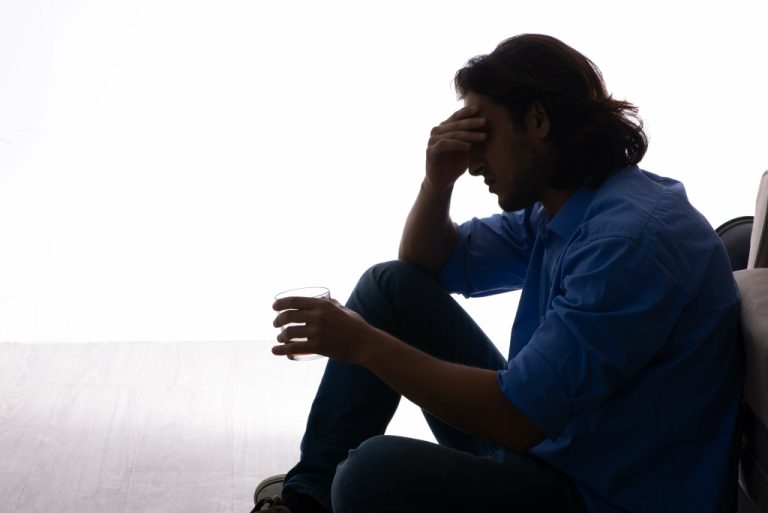Creating a Plan for Relapse Prevention
The study selection flowchart, a description of 380 excluded studies and the following 26 included studies with 72 dose arms and 4776 participants are provided in the eFigure, eTable 1, and eTable 2 in the Supplement. Nineteen percent of the studies were judged to be of low overall risk of bias, 50% had some concerns of bias, and 31% were considered at high relapse prevention risk for bias (eAppendix 3 in the Supplement). What is more, negative feelings can create a negative mindset that erodes resolve and motivation for change and casts the challenge of recovery as overwhelming, inducing hopelessness. A relapse or even a lapse might be interpreted as proof that a person doesn’t have what it takes to leave addiction behind.
- The RP model proposes that at the cessation of a habit, a client feels self-efficacious with regard to the unwanted behaviour and that this perception of self-efficacy stems from learned and practiced skills3.
- When an urge comes, it can be difficult to manage it, especially in the beginning of recovery.
- Breathing greatly impacts your emotions and helps regulate your overall mood.
- When someone in early recovery focuses with such fervor on a partner, they no longer can keep the focus on themselves.
Helping people understand whether emotional pain or some other unacknowledged problem is the cause of addition is the province of psychotherapy and a primary reason why it is considered so important in recovery. Therapy not only gives people insight into their vulnerabilities but teaches them healthy tools for handling emotional distress. Prolonged stress during childhood dysregulates the normal stress response and can lastingly impair emotion regulation and cognitive development.
Care for yourself
Recovery from drug and alcohol addiction can be a long and challenging process. Recovering individuals are often overwhelmed by the idea of change. As part of their all-or-nothing thinking, they assume that change means they must change everything in their lives. It helps them to know that there is usually only a small percent of their lives that needs to be changed.
It also provides the skills to change your behavior and avoid misusing substances again. Also critical is building a support network that understands the importance of responsiveness. Not least is developing adaptive ways for dealing with negative feelings and uncertainty.
Financial support and sponsorship
Therapists and counselors will document, share, and regularly update these strategies throughout your treatment. For example, celebrating these milestones may provide a tempting excuse to give into old habits.

Share it with the people you spend a lot of the time with, including those who have used substances with you in the past, so they can be aware. Outcome expectancies can be defined as an individual’s anticipation or belief of the effects of a behaviour on future experience3. The expected drug effects do not necessarily correspond with the actual effects experienced after consumption.
Identify and Avoid Triggers
Providers have long recognized that relapse is a process rather than an event. Countless individuals lose their employment, families, freedom, and even lives as a consequence of relapses.[2] Three of the most common relapse prevention strategies have included therapy and skill development, medications, and monitoring. A relapse prevention plan includes various strategies and techniques, such as identifying personal behaviors, to help reduce the risk of a relapse following treatment for substance use disorder. An important part of RP is the notion of Abstinence violation effect (AVE), which refers to an individual’s response to a relapse where often the client blames himself/herself, with a subsequent loss of perceived control4. It occurs when the client perceives no intermediary step between a lapse and relapse i.e. since they have violated the rule of abstinence, “they may get most out” of the lapse5. People who attribute the lapse to their own personal failure are likely to experience guilt and negative emotions that can, in turn, lead to increased drinking as a further attempt to avoid or escape the feelings of guilt or failure7.
- The study selection flowchart, a description of 380 excluded studies and the following 26 included studies with 72 dose arms and 4776 participants are provided in the eFigure, eTable 1, and eTable 2 in the Supplement.
- Approach oriented participants may see themselves as more responsible for their actions, including lapse, while avoidance-based coping may focus more on their environment than on their own actions14.
- Motivational Interviewing provides a means of facilitating the change process7.
- These relapse prevention models offer a unique take on the process.
- Clinical experience has shown that this stage usually starts 3 to 5 years after individuals have stopped using drugs or alcohol and is a lifetime path.
They want to prove that they have control over their addiction and they are not as unhealthy as people think. Joining a self-help group has been shown to significantly increase the chances of long-term recovery. The combination of a substance abuse program and self-help group is the most effective [22,23]. Finally, physical relapse is when an individual starts using again. Some researchers divide physical relapse into a “lapse” (the initial drink or drug use) and a “relapse” (a return to uncontrolled using) [8]. Clinical experience has shown that when clients focus too strongly on how much they used during a lapse, they do not fully appreciate the consequences of one drink.
Self-efficacy is defined as the degree to which an individual feels confident and capable of performing certain behaviour in a specific situational context5. The RP model proposes that at the cessation of a habit, a client feels self-efficacious with regard to the unwanted behaviour and that this perception of self-efficacy stems from learned and practiced skills3. In a prospective study among both men and women being treated for alcohol dependence using the Situational Confidence Questionnaire, higher self-efficacy scores were correlated to a longer interval for relapse to alcohol use8. The relationship between self-efficacy and relapse is possibly bidirectional, meaning that individuals who are more successful report greater self-efficacy and individuals who have lapsed report lower self-efficacy4. Chronic stressors may also overlap between self-efficacy and other areas of intrapersonal determinants, like emotional states, by presenting more adaptational strain on the treatment-seeking client4. Marlatt, based on clinical data, describes categories of relapse determinants which help in developing a detailed taxonomy of high-risk situations.
- Creating a list of warning signs can give a person more insight into their relapse.
- Making a list of internal and external triggers is an efficient way to gain awareness of one’s triggers and reduce the risk of relapse.
- The tasks of this stage are similar to the tasks that non-addicts face in everyday life.
- An emotional relapse may occur when a person remembers their last relapse, does not want to repeat it, and is not thinking about using.
- Many think a lapse means the failure of a patient to recover successfully.
D, The results of primary scientific dose-equivalence method were compared with the consensus-based dose equivalents. The marks on the x-axis indicate for which doses study-arm data were available. The marks on the x-axis indicate for which doses study arm data were available. When an urge to use hits, it can be helpful to engage the brain’s reward pathway in an alternative direction by quickly substituting a thought or activity that’s more beneficial or fun— taking a walk, listening to a favorite piece of music. Possible substitutes can be designated in advance, made readily available, listed in a https://ecosoberhouse.com/ plan, and swiftly summoned when the need arises. Whether or not emotional pain causes addition, every person who has ever experienced an addiction, as well as every friend and family member, knows that addiction creates a great deal of emotional pain.
Cognitive Therapy and Relapse Prevention
Implementing these relapse prevention techniques into your daily schedule can greatly help reduce the risk of relapse. Contact a dedicated treatment provider to learn more about inpatient or outpatient treatment programs to learn more relapse prevention skills and get help today. When people don’t understand relapse prevention, they think it involves saying no just before they are about to use. But that is the final and most difficult stage to stop, which is why people relapse. If an individual remains in mental relapse long enough without the necessary coping skills, clinical experience has shown they are more likely to turn to drugs or alcohol just to escape their turmoil.
Or they may be caught by surprise in a situation where others around them are using and not have immediate recourse to recovery support. Or they may believe that they can partake in a controlled way or somehow avoid the negative consequences. Sometimes people relapse because, in their eagerness to leave addiction behind, they cease engaging in measures that contribute to recovery. Relapse is most likely in the first 90 days after embarking on recovery, but in general it typically happens within the first year. Recovery is a developmental process and relapse is a risk before a person has acquired a suite of strategies for coping not just with cravings but life stresses and established new and rewarding daily routines. Another important part of your recidivism prevention plan is what to do when faced with potential triggers.

